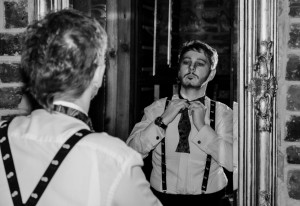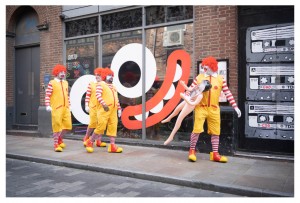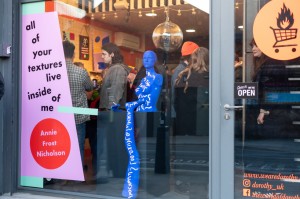An Invitation To Terror: The Haunting Of Hill House –Reviewed
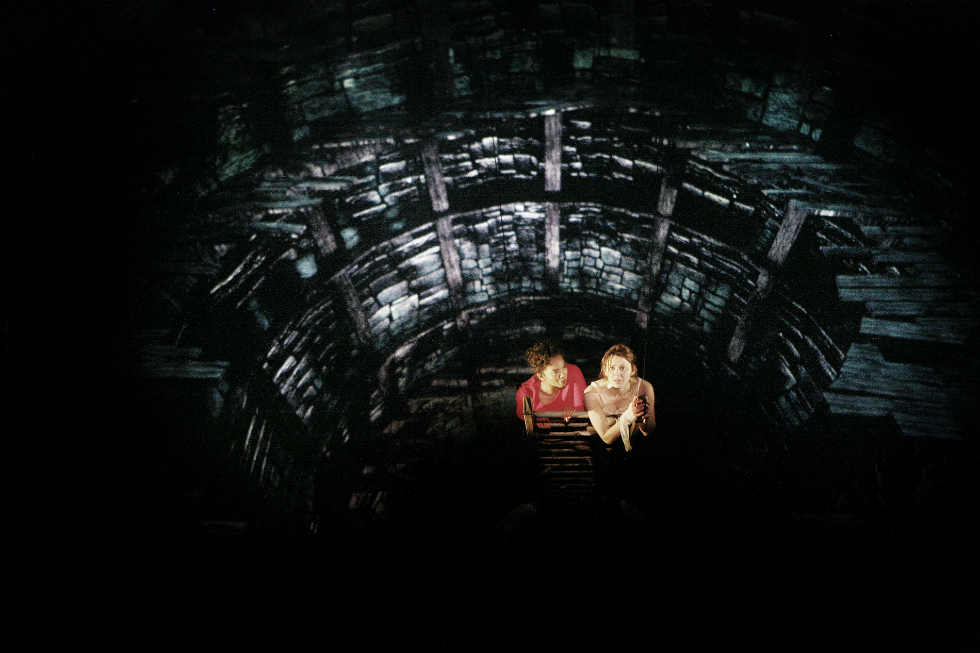
David L. Rattigan enjoys a sense of unearthly dread thanks to Liverpool’s Everyman & Playhouse — currently hosting the warped, winding corridors of Hill House…
While you might leave behind one or two of the wordier scenes and the occasionally convoluted machinations of the plot, the warped, surreal benightedness of The Haunting Of Hill House – a new commission for the stage from Liverpool Everyman & Playhouse — will almost certainly follow you out of the theatre.
Originally published in 1959, Shirley Jackson’s classic novel on which the play is based tells of four characters gathering at a New England mansion at the behest of a paranormal researcher to observe alleged ghostly activity. It was memorably made into a film — The Haunting — in 1963, directed by Robert Wise — whose eclectic resumé also included The Curse of the Cat People, The Day the Earth Stood Still, West Side Story and The Sound of Music — and again in 1999, in a version by Jan de Bont (featuring Catherine Zeta-Jones and Liam Neeson) best consigned to the vaults. Now it is on stage for the first time ever, in an adaptation co-produced by Hammer; the company most famous for the Gothic horror films it produced from the ‘50s through to the ‘70s.
Emily Bevan (The Casual Vacancy, In the Flesh) plays Eleanor – Nell — a New England woman tormented by the memory of her late mother. She is the first true star of this adaptation, taking an even more central role than did Julie Harris in the brilliantly executed film version. We experience almost everything through her, being moved at times to amusement at her foibles; sympathy with, perhaps pity at, her neuroses; and unearthly dread as she finds herself increasingly terrorised by Hill House, a place that both tortures her and fulfils her dreams. Like her, Hill House does not appear to have escaped its past. Bevan’s is a strong performance that carries the show alongside the second real star — Hill House itself.
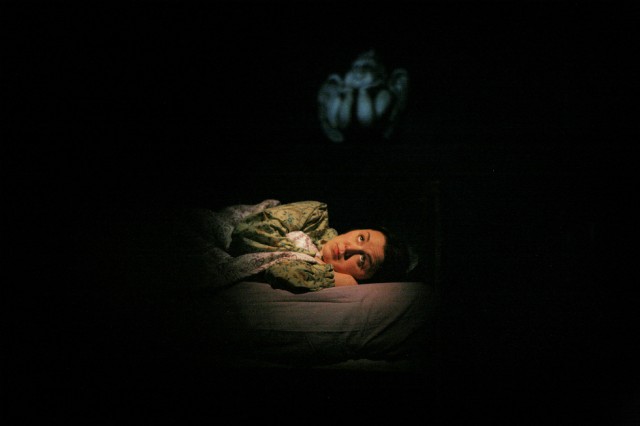
The effects, mostly a combination of gauzes, projections, lighting, shadows and sounds, will creep up on your imagination long after the play has ended. They take us deep into Nell’s mind and into the winding corridors of Hill House. Its chambers and hallways literally swirl around our antihero as she explores it with a mixture of fear and childlike excitement. There’s a handful of jump scares, but the most chilling elements of this production slither towards us.
One other performance worth noting is that of Chipo Chung as Theodora. She is assured in a role that draws out some of Nell’s suppressed instincts, promising her the freedoms she — through circumstances and her own psychological inadequacies — has been denied. As Dr Montague, the academic behind the paranormal experiment, Martin Turner is adequate but lacks gravitas; and yet, while a more charismatic presence might have added another layer to the story, the exhilarating atmosphere and two strong central performances make up for this shortcoming. Of the rest of the cast, Joseph May clearly enjoys himself as the wisecracking reporter whose scepticism is challenged by events.
There are some obvious flaws, including an episode of what my companion described as “a bit school-drama class,” and one or two effects that don’t quite work, or at least only truly work from certain vantage points in the theatre. But again, they seem immaterial in view of the whole.
Perhaps it is telling that the play’s opening sequence, in the form of a monologue over scenes of Nell driving to her appointment at Hill House, is strongly reminiscent of Marion Crane’s flight from Phoenix in Alfred Hitchcock’s Psycho (1960). For as I sit to write this review, I’m captivated all over again in the way I find myself haunted by another Hitchcock film, Vertigo (1958). Like Vertigo, The Haunting Of Hill House is about being pursued by memories, enticed into a place that offers both promise and discomfort, freedom and fear; this theme is conveyed not merely cerebrally, but by exerting a cinematic quality that mesmerises all the senses.
Recalling the crazed journey through Nell’s mind and through the Gothic contours of Hill House makes me want to return. Some theatrical experiences hit you hard but are soon forgotten; the ghostly presence of Hill House, however, will remain with you long after you stumble out the front door and into the light.
David L. Rattigan
See The Haunting Of Hill House at the Playhouse Theatre, Liverpool, until Saturday 16 January 2016 — £14-25



